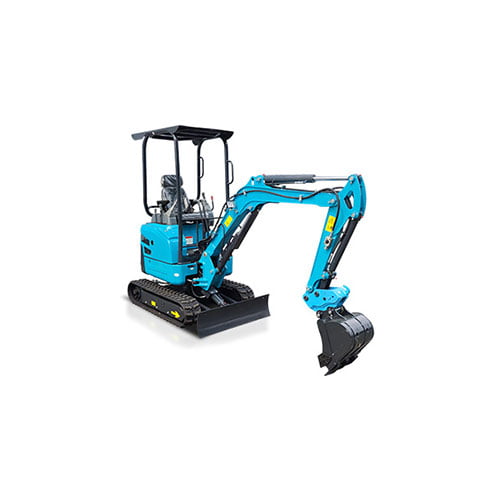Welcome to My Blog!
Before we dive into the content, I’d love for you to join me on my social media platforms where I share more insights, engage with the community, and post updates. Here’s how you can connect with me:
- Facebook: https://www.facebook.com/profile.php?id=100072217509763
- LinkedIn: https://www.linkedin.com/company/74949059/admin/dashboard/
- YouTube:www.youtube.com/@tractormanufacturer-lc5qz,www.youtube.com/@excavatormanufacturers-sn9hk
- TikTok: www.tiktok.com/@tractormanufacturer, www.tiktok.com/@excavatormanufacturers
Now, let’s get started on our journey together. I hope you find the content here insightful, engaging, and valuable.
Introduction

When it comes to tackling home improvement projects or small-scale landscaping jobs, many homeowners find themselves pondering the best equipment for the job. Among the various options available, a mini excavator for home use stands out as a versatile and efficient choice. This blog will explore the advantages of using a mini excavator for home projects, covering its benefits, applications, and key considerations for selection.
Benefits of a Mini Excavator for Home Use
A mini excavator for home use offers several compelling benefits that make it an ideal tool for various tasks. Here’s why it might be the right choice for your next project.
Versatility and Efficiency
Mini excavators are renowned for their versatility. They can handle a wide range of tasks, including:
- Digging: Efficiently excavate soil, gravel, and other materials.
- Trenching: Create trenches for utilities, drainage, or landscaping.
- Grading: Level and prepare surfaces for construction or gardening.
- Demolition: Remove small structures or debris with the right attachments.
Their compact size allows them to operate in tight spaces where larger machinery cannot reach, making them suitable for residential projects.
Cost-Effectiveness
Investing in a mini excavator can be cost-effective compared to hiring a contractor or renting equipment. Here’s how:
- Purchase vs. Rental: Owning a mini excavator eliminates ongoing rental fees and can be more economical if you have multiple projects.
- Time Savings: Speed up project completion, potentially saving on labor costs.
Ease of Operation
Modern mini excavators are designed to be user-friendly, even for those with limited experience. Features that contribute to ease of operation include:
- Intuitive Controls: Many mini excavators have straightforward control systems that are easy to learn.
- Compact Size: Allows for better maneuverability and control, especially in small or cluttered areas.
Improved Safety
Using a mini excavator can enhance safety on the job site. Advantages include:
- Reduced Manual Labor: Minimizes the need for heavy manual lifting and digging, reducing the risk of injury.
- Stable Operation: Mini excavators are designed with stability in mind, making them less prone to tipping or accidents.
Applications of Mini Excavators for Home Use
Mini excavators can be used for a wide range of home improvement and landscaping tasks. Here are some common applications:
Landscaping and Gardening
- Tree Removal: Efficiently remove trees and stumps.
- Soil Preparation: Prepare soil for planting or laying sod.
- Pond Excavation: Dig and shape ponds or water features.
Construction and Renovation
- Foundation Work: Excavate foundations for new structures or additions.
- Site Preparation: Level and clear land for construction projects.
- Utility Installation: Dig trenches for plumbing, electrical, or irrigation systems.
Demolition
- Small Structures: Remove old sheds, fences, or small outbuildings.
- Debris Removal: Clear debris from renovation or demolition projects.
Key Features to Consider
When selecting a mini excavator for home use, several key features should be evaluated to ensure it meets your needs:
Size and Weight
- Compactness: Choose a model that fits your workspace. Smaller models are ideal for tight areas.
- Lift Capacity: Ensure the excavator can handle the weight of the materials you plan to move.
Engine Power
- Horsepower: Higher horsepower provides more power but may result in a larger, more expensive machine. Choose based on your project’s demands.
Reach and Digging Depth
- Reach: Consider the maximum reach of the excavator’s arm for accessing difficult spots.
- Digging Depth: Ensure the digging depth meets your excavation needs.
Attachments and Accessories
- Bucket Options: Different buckets are available for various tasks, such as digging, grading, or grading.
- Additional Tools: Consider attachments like augers, hydraulic hammers, or grapples for expanded functionality.
Key Features and Specifications of Mini Excavators
| Feature | Description | Typical Value | Impact on Use |
|---|---|---|---|
| Operating Weight | The weight of the mini excavator. | 3,000 – 8,000 lbs | Affects stability and transportability. |
| Track Type | Type of tracks on the mini excavator. | Rubber, Steel | Influences traction and ground protection. |
| Hydraulic Flow Rate | The rate at which hydraulic fluid flows through the system. | 10 – 25 GPM | Affects the speed and efficiency of attachments. |
| Swing Radius | The distance the machine’s tail swings during operation. | 3 – 7 ft | Important for maneuvering in confined spaces. |
| Cab Type | The design and comfort of the operator’s cab. | Open, Enclosed | Affects operator comfort and visibility. |
| Max Dump Height | The maximum height at which the machine can dump materials. | 8 – 14 ft | Determines how easily materials can be unloaded. |
| Ground Clearance | The distance between the ground and the lowest part of the machine. | 12 – 18 in | Affects the ability to navigate uneven terrain. |
Maintenance and Care

Proper maintenance is crucial for ensuring the longevity and performance of your mini excavator. Key maintenance tasks include:
Regular Inspections
- Check Fluids: Regularly inspect and top off fluids, including oil, coolant, and hydraulic fluid.
- Inspect Components: Check for wear and tear on tracks, hoses, and other critical components.
Cleaning
- Debris Removal: Clean the excavator after use to remove dirt and debris that could cause damage or reduce efficiency.
- Machine Wash: Occasionally wash the machine to prevent buildup and maintain its appearance.
Scheduled Servicing
- Manufacturer Recommendations: Follow the manufacturer’s service schedule for routine maintenance and inspections.
- Professional Servicing: Consider having the machine serviced by professionals to address complex issues.
Conclusion
A mini excavator for home use is a versatile and practical tool that can significantly enhance your ability to handle a variety of tasks around your property. From landscaping and gardening to construction and demolition, these machines offer efficiency, safety, and cost-effectiveness.
When selecting a mini excavator, consider factors such as size, engine power, reach, and available attachments to ensure it meets your specific needs. With proper maintenance and care, a mini excavator can be a valuable investment that provides long-term benefits for your home projects.
By understanding the advantages and features of mini excavators, you can make an informed decision and choose the right equipment to achieve successful and efficient results for your projects.
FAQ
What is a mini excavator, and why should I choose it for home use?
A mini excavator is a compact, versatile machine designed for digging, grading, and other tasks in tight spaces. It’s ideal for home use due to its maneuverability, efficiency, and cost-effectiveness.
What types of projects are suitable for a mini excavator?
Mini excavators are suitable for landscaping, construction, renovation, and demolition projects. They can handle tasks such as digging, trenching, grading, and debris removal.
How do I choose the right mini excavator for my needs?
Consider factors such as size, engine power, reach, digging depth, and available attachments. Choose a model that fits your workspace and meets the demands of your project.
What maintenance is required for a mini excavator?
Regular maintenance includes checking fluids, inspecting components, cleaning the machine, and following the manufacturer’s service schedule for routine servicing.
Can I use a mini excavator for both indoor and outdoor projects?
Yes, mini excavators are versatile and can be used for both indoor and outdoor projects. However, ensure that the model you choose is suitable for the specific environment and conditions.
How does owning a mini excavator compare to renting one?
Owning a mini excavator can be more cost-effective if you have multiple projects, as it eliminates ongoing rental fees. It also provides the convenience of having the equipment readily available.




